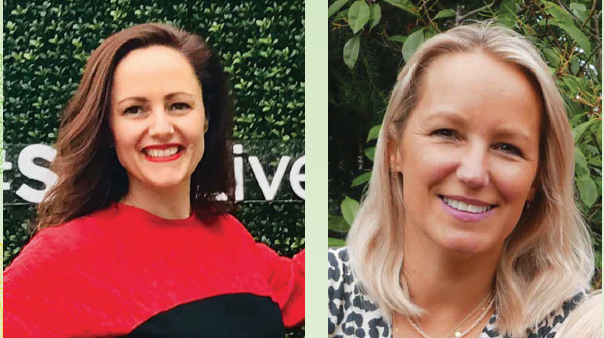
Being a brand in today’s bustling marketplace is like trying to be the life and soul of the party in a room with Ryan Reynolds.
And with everyone jumping on the ‘sustainable’ bandwagon shouting about ESG strategies and environmental initiatives, future-facing brands will be defined not by their ability to sell products, but by their capacity to inspire change.
Brand equity starts with good – well at least 2.7 billion Millennials and Gen Z think so. For future shareholder value, there needs to be a future.
Set to be an economic powerhouse within the next decade, Gen Z already boasts a combined spending power of over $100bn globally and three-quarters believe sustainability is more important than brand name.
Additionally, 73 per cent of global consumers believe brands have a responsibility to make positive change in the world.
We are at a critical point in time as ‘sustainable business’, ‘ESG’ and ‘environmental initiatives’ are no longer just buzzwords put in the same sentence. They are the backbone of modern business, the pillars that are reshaping the global economic landscape.
This is about using your position of power as a force for good, it’s about genuine, authentic business leadership.
In a cluttered marketplace, sustainability is innovation’s new frontier.
Gaining a competitive advantage in a world where consumers are spoilt for choice, differentiation is key and B Corp will tell you sustainable brands have a distinct advantage, growing 5x faster than their non purpose-driven friends.
These brands inspire trust, loyalty and a sense of shared purpose with their customers.
By embracing ESG principles, championing decarbonisation and investing in sustainable leadership training, brands are securing a competitive edge.
Educating brands is the key to turning the tide on climate change – brands have a global outlook, they care about their customers, and consumers care about the planet.
But you’re not going to solve sustainability or win market share by just implementing an ESG strategy, or by embracing a new green department.
The leaders in green transformation which include some global brands (Unilever, Starbucks, LEGO, Patagonia, Ben & Jerry’s, Finisterre) and many startups (which have agility as their competitive edge) – embed good into their whole organisation, holistically integrating sustainability into their entire business.
Recently, Apple caused quite a stir within the industry after releasing their Mother Nature campaign that saw over half a million views on day one.
Using an innovation-lens (and an A-List cast) they addressed climate change, carbon neutral targets, greenwashing, accountability and transparency, with the perfect dash of humour.
Love it or hate it, this creative masterclass in corporate sustainability messaging is a welcomed step in the sustainable world which continues to showcase Apple as a global industry leader.
Ofcourse, there will always be the negative- Nancys quick to pull others down, but to release a campaign when you’re not 100 percent sustainable takes bravery.
Most brands are green hushing, totally crippled by saying anything for fear of greenwashing but we know that sustainability is a journey – and we all have to start somewhere.
It’s time for brand leaders to lead the charge on change and not be crippled by fear of being called out.
Investing in sustainability isn’t just about being socially responsible—it’s about securing the future success of your brand and unlocking future growth.
Sustainable brands are better positioned to adapt to changing consumer choices, environmental demands, market dynamics, corporate governance and legislation.
Almost two thirds of global executives admit to greenwashing, and greenwashing fines in the EU can now hit 10 per cent of business turnover.
How soon will these numbers become a precedent for the UAE considering The Year of Sustainability in 2023 and COP28 in the region in November?
The next era will be defined by a brand’s ability to create a purpose-driven strategy and design, to educate, embrace and champion sustainable leadership training; and the capacity to deliver a positive impact for your consumers.
By future-proofing your brand, you not only create brand loyalty from customers, employees and investors, you also future-proof your own career.
Chief Sustainability Officers now make up 28 percent of global executives, and according to the LinkedIn Global Green Skills Report in 2022, green jobs are outstripping green talent demand in 2023.
As brand leaders, let’s use creativity to lead the charge on change and pivot from promoting consumption, to championing positive change.
With an estimated $1 trillion for brands that make their sustainability credentials clear – be more Ryan Reynolds, and seize the day.
By Charney Magri and Sophie Matthews of Do Epic Good









